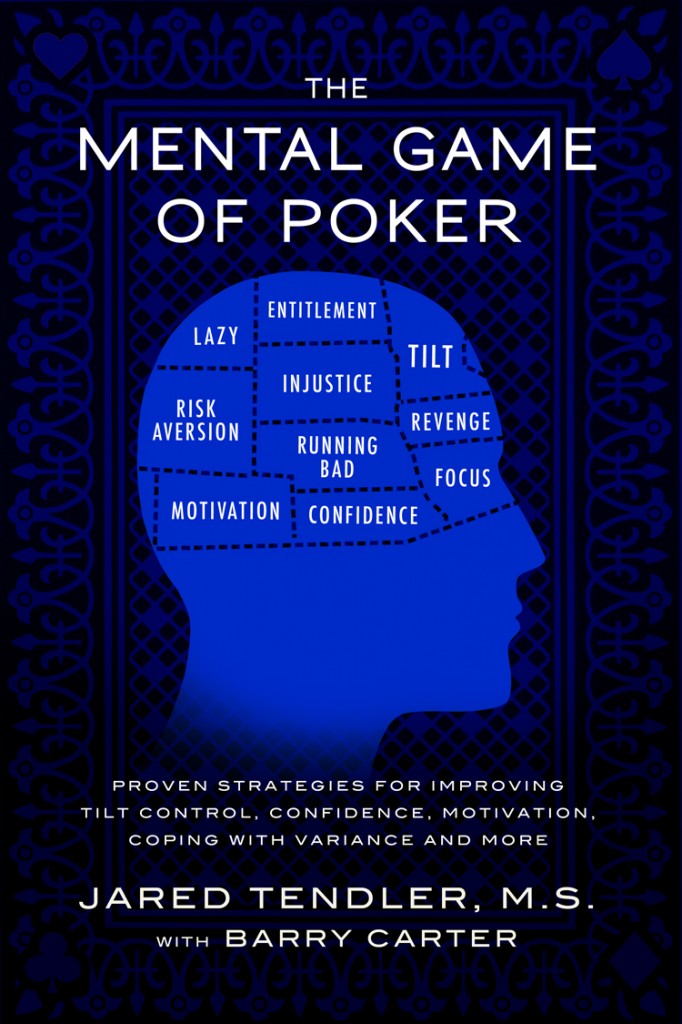Previous part of the book “Mental Game of Poker”: Inabilities and Desires
5.3.5 The Desire to Control Variance
Although it may seem illogical, the desire to control variance is something that most players deeply wish for. This often manifests in various ways, such as asking for a needed card to fall, avoiding looking at the flop, thinking it will result in a better card, or standing up from the chair when facing a coin flip situation. All of this does not affect the card that falls, although most players would like to believe otherwise. Sometimes the desire to control variance becomes very obvious and manifests in belittling the opponent who sucked out on you, and sometimes even praying, as Jerry Yang did in the WSOP main event (successfully, by the way).
The very desire to control variance means that you are actually letting go of control. Let's assume that you really had less luck than expected, and it lasted much longer than the mathematical laws suggest is normal. In such a case, it is completely normal to feel crappy, but the essential question is – do you let anger and frustration affect your game? Very often, players with a hidden desire to control variance eventually lose control of their game. Since you cannot control variance, but you can control your reaction to it, the main goal is to improve psychologically so that those reactions are more effective. Of course, this is not easy. Variance is the main reason why poker is so difficult. Eliminate the desire to control variance and instead focus on controlling your game.
INSERTED LOGIC: IT IS IMPOSSIBLE TO CONTROL VARIANCE, BUT IT IS POSSIBLE TO UNDERSTAND IT BETTER.
IT IS IMPOSSIBLE TO CONTROL THE DEALT CARDS, BUT IT IS POSSIBLE TO CONTROL YOUR GAME.
5.3.6 Excuse for Not Wanting to Learn
It is easy to find players who avoid improving their game because they believe they lose due to bad variance. When it seems like “there's no point in trying because I'll mess up anyway,” it is understandable why there is no desire to spend time learning. If you think that the only reason for losses is bad variance, then it is illogical to improve your game.
Honestly, it is much easier to complain about bad variance than to try to improve. If you try to improve but still lose, it means beating yourself up in both cases. Both pills are bitter and can make you feel like you've failed and wasted time. Blaming failure allows you to escape these feelings.
The biggest risk of such complaining about bad luck is that very important game details are overlooked, especially when an opponent outplays you. By complaining, you seem to detach yourself from the reality of the game. The longer this state lasts, the more your real advantage decreases… which increases variance… which means more failures… which leads to more complaining and less work on improvement. This vicious cycle will continue until you acknowledge the reality of the game and take action to improve the quality of your play.
There may be other psychological problems you are trying to protect yourself from, such as fear of failure, loss of confidence, or tilt. If so, then address each of those problems directly.
INSERTED LOGIC: STOP COMPLAINING. THERE IS ALWAYS SOMETHING YOU CAN LEARN.
CLIENT STORY
Barry Carter
Mid-stakes SNG and cash game NLHE poker
Poker journalist
Before meeting Jared, I had been working as a poker journalist for five years. Like most players who have been playing poker for a long time, the first few years were successful for me. However, in 2009 I faced a brutal downswing that crushed my game. I had heard about Jared and seen some of his videos, but I thought he was probably one of those who talk about “imagine yourself not getting bad beats” crap, which I had associated with poker psychology until then. Despite this, I was really desperate, so I wanted to try Jared before buying some “self-help” type book.
I presented three main problems. First, I felt cursed. I really thought I was doing worse than the rest of the world and was ready to prove it to anyone willing to listen. Second, I developed a terrible case of risk aversion. And finally, I was really struggling to put effort into improving my game. At this point, I considered myself lazy. At that time, Jared told me, “you realize that's a load of crap?”
I was shocked. Wasn't he supposed to make me feel like Phil Ivey and say I could achieve anything? Can a psychological coach talk like that? Weren't we supposed to start chanting Buddhist chants or doing some similar crap?
Jared asked if I could see a clear connection between all three problems. In some sense, I could see a connection between thinking I was cursed and risk aversion. But I completely didn't understand how my laziness was related to the other problems.
“What's the point of learning if you're cursed?” Jared asked. “There's no such thing as laziness; you're just not motivated to work on your game. You've decided you have an excuse not to learn because you're cursed, so you don't learn.”
Suddenly everything became very simple. How had I not been able to see it before? From Jared's first observation about the load of crap, I realized he was the real deal. I always thought I knew myself well, so the fact that Jared quickly understood why I wasn't trying to improve hooked me on the psychological game.
It took quite a while for me to fully understand my reluctance to learn. And over the coming months, my case helped me understand how many psychological problems are interconnected. Thinking I was cursed hindered my learning, but risk aversion also contributed. During one session, I mentioned to Jared that my image of poker success is a tournament winner posing for the cameras, holding the winning cards, with a pile of chips in front of him.
“Maybe I should stop playing SNG and cash games and start playing tournaments,” I joked.
Never joke during a session with Jared Tendler. He doesn't let it slide. He started asking why I hardly play tournaments, even though my image of poker success is winning a tournament? He made me realize that this time risk aversion was hindering my improvement because I associated success with something I wasn't even trying to achieve, so I had a perfect excuse when I didn't achieve it.
This eventually led to the core issues of why I wasn't trying to learn and improve at all. I didn't want to put myself in a position where I would have to justify my losses. Being a poker journalist, I have to write about various success stories every day, and I also have many friends among poker professionals. In reality, I was afraid of being humiliated in their eyes, so I chose a less risky path, which meant not improving, blaming luck, and not giving a chance to be ridiculed.
Understanding such fears gave me a starting point. I knew that the worst thing that could happen if I started learning was being ridiculed. I also realized that I wasn't as good a player as I thought I was. And that's good because there's room for improvement. Thanks to solid concepts like the worm and SMM, I now know that there is always room for improvement. I also know ways to notice small incremental improvements, even when a very big period of failure hits.







